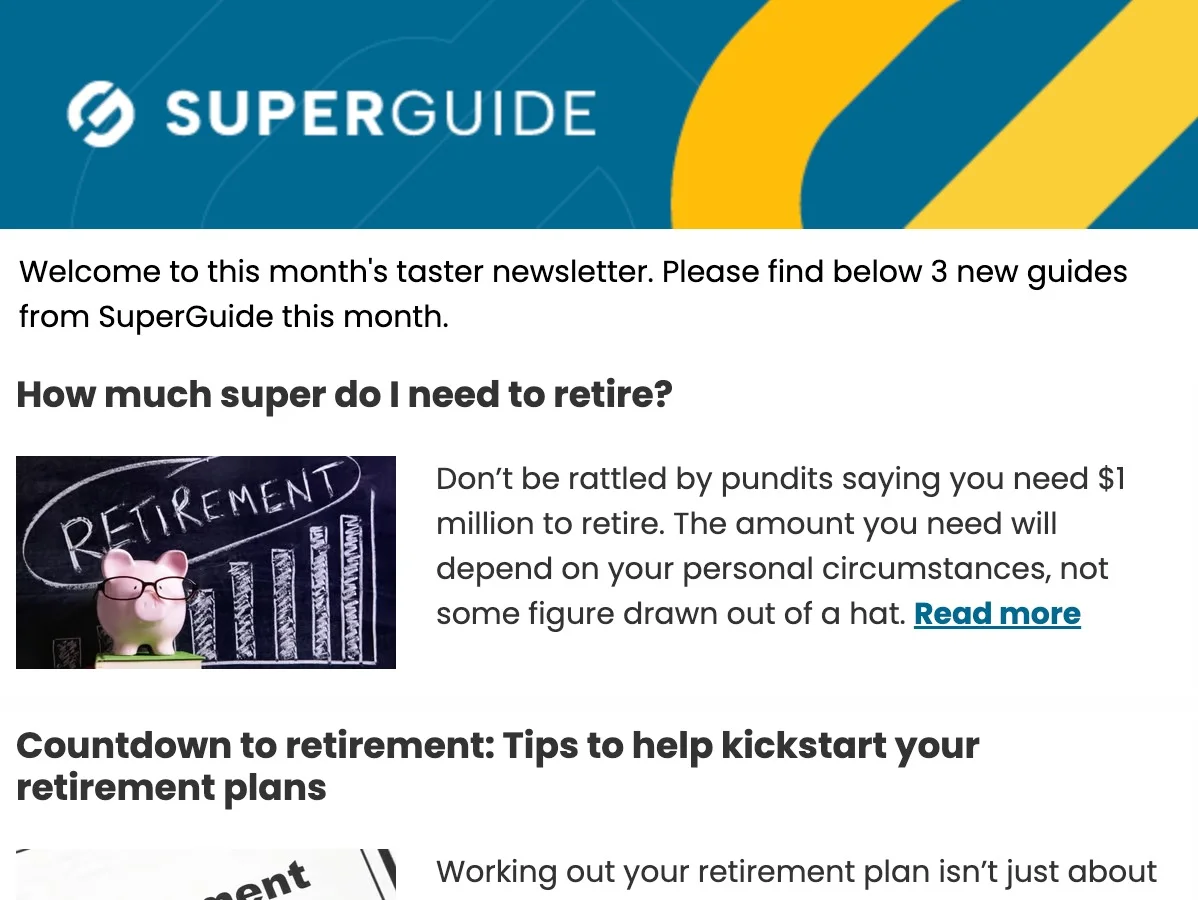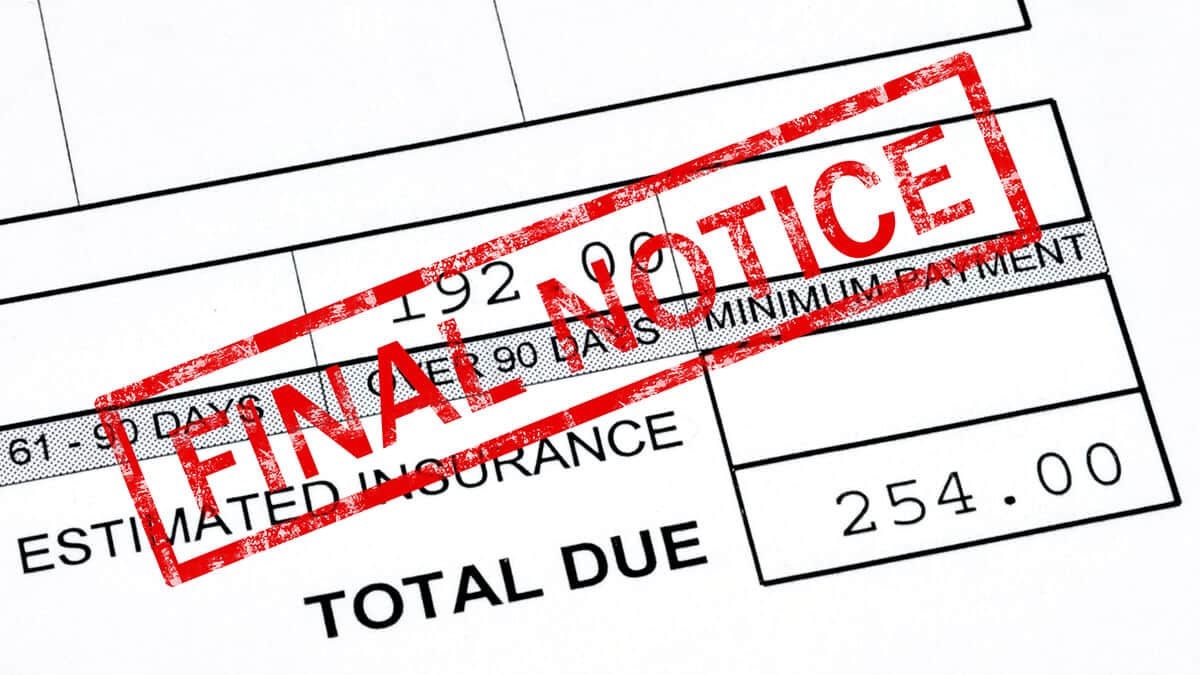In this guide
- What is meant by severe financial hardship?
- Can I withdraw super to pay off debts?
- What’s the difference between severe financial hardship and compassionate grounds?
- You can also access your super early if you are terminally ill or incapacitated
- How do you apply for early release of super due to severe financial hardship?
- Do the rules differ if you’re in an SMSF?
- What are the tax implications?
- The bottom line
While your super is generally locked away until you retire, there are some circumstances that allow early release.
Accessing super early due to severe financial hardship is possible under Australian law, provided you meet strict eligibility requirements and your super fund allows it. If it doesn’t, you may be able to transfer your super to one that does.
This condition of release allows the early payment of up to $10,000 from your super if you are receiving Centrelink support and meet the criteria.
What is meant by severe financial hardship?
If you haven’t reached your preservation age, you may be considered to be in severe financial hardship if you meet the following three criteria:
- You are unable to pay your reasonable and immediate family living expenses
- You have received eligible government income support payments from Services Australia for a continuous period of at least 26 weeks
- You are still receiving those payments when you apply for the early release.
Living expenses include:
- Overdue mortgage repayments
- Rent arrears
- Outstanding bills
- Car repairs
- Medical expenses.
Payments released early under the severe financial hardship provision can only be made in a lump sum of no less than $1,000 and no more than $10,000. (Less than $1,000 may be paid if you have less than that amount in your super account.)

Free eBook
Retirement planning for beginners
Our easy-to-follow guide walks you through the fundamentals, giving you the confidence to start your own retirement plans.
"*" indicates required fields
If you’ve reached your preservation age plus 39 weeks and have not met a condition of super release, you can apply for early access provided you:
- Have been receiving Centrelink payments for at least 39 consecutive weeks
- You don’t have a full- or part-time job at the time you apply.
In this situation, there are no restrictions on the amount you can access. Only one early release is available under the severe financial hardship provision in any 12-month period.
It’s important to remember that any super money you withdraw early will impact on the funds you have available for retirement. You should fully explore all your options before going down this path. For example, try to work out alternative payment arrangements with your lenders if possible, or contact the National Debt Helpline for advice.
Can I withdraw super to pay off debts?
Yes, but it’s important to understand that early super payments made under the severe financial hardship provision can only be used to pay your reasonable living expenses. Funds are also only available for payments that are in arrears, not for future repayments or to clear debt.
What’s the difference between severe financial hardship and compassionate grounds?
Severe financial hardship grounds for accessing super early are different from compassionate grounds (which is another potential way that super can be accessed early under Australian law). It’s important to understand the difference between these two categories because there are different terms and conditions for access.
The major difference is that you don’t need to have been receiving Centrelink payments to be eligible for accessing super early on compassionate grounds (like you do under the severe financial hardship provision). Also, the compassionate grounds provision applies only to your inability to pay one or more of the following expenses:
- Your own (or one of your dependant’s) medical treatment or transport for a life-threatening or mental illness, or one that generates chronic pain
- A mortgage or council rates payment to prevent you from losing your home
- Home or vehicle costs to accommodate your own (or a dependant’s) disability
- Paying for your own (or a dependant’s) palliative care
- Paying for the death, funeral or burial expenses of a dependant.
You can also access your super early if you are terminally ill or incapacitated
If you’re diagnosed with a terminal medical condition you can access ALL of your super early under Australian law, not just a maximum annual payment of $10,000.
If you’re diagnosed as being temporarily or permanently incapacitated, you may be eligible for insurance benefits through your super fund if you have this coverage. In the case of temporary incapacity, payments can be made while you’re unable to work. If you’re permanently incapacitated you can receive all your super either as a lump sum or as a regular income stream.
2026 SMSF calendar
Our free calendar includes due dates for important documents plus suggested dates for trustee meetings and other strategic issues for your SMSF.
"*" indicates required fields
How do you apply for early release of super due to severe financial hardship?
If you wish to seek early release of your super on severe financial hardship grounds, you need to apply to your super fund. (Severe financial hardship is not administered by the ATO.)
If your fund doesn’t allow for this type of release, you may be able to transfer your super to one that does.
Different super funds will have different application requirements, but generally you’ll need to show that you meet the eligibility requirements by:
- Explaining the cause of your severe financial hardship, including the arrears you have for living expenses
- Explaining how you’ll spend the money if your application is approved
- Providing evidence of you and your family’s income and expenses to show that you can’t meet your living expenses
- Providing a financial hardship letter from the Services Australia or Centrelink showing you’re currently receiving income support and that you’ve done so for the required eligibility period (that is, at least 26 weeks if you haven’t reached your preservation age, or at least 39 weeks if you have but don’t meet a normal condition of release).
Your super fund will assess all this information in deciding whether to approve your application.
Do the rules differ if you’re in an SMSF?
No. SMSF trustees are legally obliged to assess any member applications for early super release using the same severe financial hardship eligibility criteria outlined above.
The ATO can impose severe financial penalties and/or imprisonment on SMSF trustees for the illegal or unauthorised early release of super funds.
If you illegally access your super early, the withdrawn amount must be included in your assessable income, even if you return the super to the fund later. This means you will pay additional income tax, tax shortfall penalties and interest. You may also be liable for an administrative penalty in your capacity as a trustee or disqualified altogether, which can have an adverse impact on you professionally, personally and financially.
The ATO has appealed to any SMSF trustee who illegally accessed their super or have been involved in a scheme promoting illegal early access to your super, to contact them immediately. Your voluntary disclosure and circumstances will be taken into account when determining any penalties.
Super knowledge is a super power

"*" indicates required fields
What are the tax implications?
If you’re approved to access some of your super early on grounds of severe financial hardship, the amount is paid and taxed as a lump sum.
The actual rate of tax will depend on your age and the taxable and non-taxable components of the payment made to you from your super account.
It’s important to understand that any early super payments you receive will usually count towards your taxable income in the year that they’re received. This can also affect your eligibility for government welfare payments and liabilities like child support.
The bottom line
While early access to super under the severe financial hardship rules provides a welcome safety net, it should be regarded as a last resort.
This is especially the case after a major market fall, when withdrawing money from your super will not only crystallise your losses but potentially short-change your future.
Remember that your super is designed to fund your retirement, so any early withdrawal now will impact the amount you’ll have available when you retire. You’ll also lose the power of compound interest on the withdrawn funds. That power can be substantial over time.
It’s worth seeking independent professional advice about whether an early release of your super is appropriate for your individual circumstances. Or indeed if you may be able to access alternative sources of income from Centrelink or government agencies to get you through a tough patch.
The information contained in this article is general in nature. Accessing your super is an important financial decision and it’s best to seek independent professional advice based on your individual financial needs and circumstances.
Make your super work harder – for free

Get practical, independent guidance to help you grow your balance, save tax and make smarter super decisions with a free SuperGuide account.
Find out more


Leave a Reply
You must be logged in to post a comment.